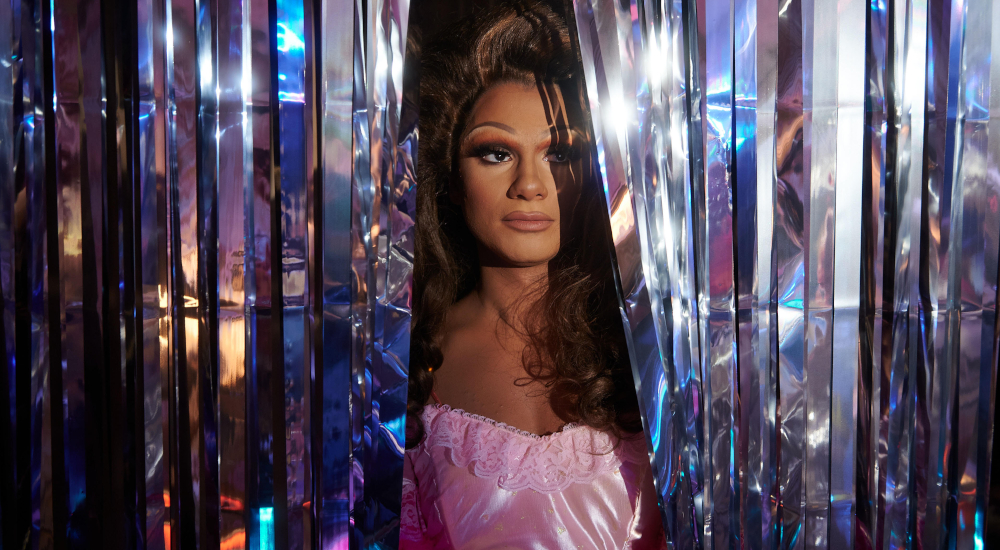"You're beautiful."
For years the film industry has worked to increase visibility regarding queer representation. Their efforts have brought forth countless characters across a plethora of meaningful projects. But even with the expansion of portrayals, filmmakers continue to struggle with their depiction of queer relationships.
Enter Amrou Al-Kadhi's Layla.
The film, set in London, tells the story of Layla, a non-binary Arab drag performer who exudes confidence and a love for the arts. But behind the thick makeup and vibrant fashion is a person with a desperate desire for love. They spend countless hours on stage, entertaining the masses. But after the lights go out, they sit alone in their dressing room, the euphoria lingering late into the night.
This feeling of joy is on full display when Layla, fresh home from a performance, lays on their bed swiping, eagerly seeking out a sexual encounter. The entire sequence of events is depressing and awkward, leaving the viewer with a sense of sympathy for our protagonist as they struggle to fulfill the needs of their heart. That emptiness sits at the nucleus of Amrou Al-Kadhi's debut feature.
While performing at a corporate Pride event for a ready-meal company, Layla catches eyes with Max, a white, cis-gender marketing executive. Though they couldn't be more opposite, Max finds himself enamored to such an extent that he bails on his professional duties to accompany his new desire to a sci-fi party on the other side of town.
Visually stunning from floor to ceiling, Al-Kadhi permits his characters the time and space to breathe, allowing Layla and Max to express themselves as they quickly succumb to their urges on the bar's rooftop.
A perceived one-night fling, a hookup for the ages, Layla wakes up alone. Their face says it all as they find themselves torn between the ecstasy experienced and the potential love lost. When Max resurfaces several days later, Layla allows their heart to flutter, soaring above the clouds as they fall hard and fast.
Al-Kadhi beautifully captures the raw emotion of fast love as the film navigates the excessive highs (and lows) that come with the start of any relationship. The fixation and discovery lead to a world of emotions, giving Layla and Max a run of endorphins.
But behind the facade of confidence sits a sliver of insecurity. Layla longs to love. And to be loved. And as they dig deeper into the relationship, they begin to sacrifice pieces of themselves for the sake of the union.
Al-Kadhi has Layla make a trip home to celebrate their sister's wedding. The scene, quick and, in many ways, simple, is profound in the way it foreshadows and mirrors the code-switching required for Layla to fit into the preconceived box set forth by their family.
The complexity deepens as the audience notices similar sacrifices made by Layla for the sake of their new relationship. Credit Bilal Hasna for the emotional pull. Their performance, along with a strong supporting cast, gives Layla depth. Our heart yearns for their happiness, notably during an uncomfortable sequence of events where they strip themselves of their liberated identity, returning to the confined social norms they worked hard to escape.
Unlike the films that have come before it, Al-Kadhi keeps things simple. Though queer in nearly every sense of the word, the film refuses to constrict its title character, instead allowing them to self-explore and learn as they navigate the merciless road often paved for those in the community. The story is Layla's, and it never feels their decisions are premeditated or forced. By the time the film reaches its apex, we aren't concerned with the status of any relationship outside of the one Layla has with themselves. To be able to accomplish that without resorting to cliches and stereotypes is, in a nutshell, a prime example of stellar filmmaking.

